Search Results
Showing results 61 to 80 of 169
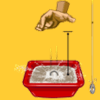
Comet Cratering
Source Institutions
Make impact craters with marbles (or rocks or washers) in a container of flour. Find out what you can learn about your "comets" by the craters they make.
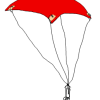
Tissue Paper Parachute
Source Institutions
In this activity, learners make a parachute out of tissue paper, tape, and string. Then, learners test their parachute to see how many paper clips it can carry.
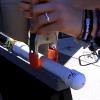
A Spray Spree
Source Institutions
In this activity, learners explore water pressure by conducting an experiment with a garden hose. Learners build a testing apparatus and create PVC nozzles with different sized holes.
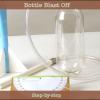
Bottle Blast Off
Source Institutions
With little more than a plastic bottle, some vinyl tubing, and a length of PVC pipe, make a rocket and a rocket launcher and investigate how rockets fly.
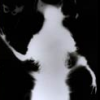
Self-Portrait Silhouettes: Activity 2
Source Institutions
In this activity, learners make a photographic image—without a camera!

Standing in the Shadow of Earth
Source Institutions
This fun and simple hands-on astronomy activity demonstrates the shadow of the Earth as it rises as a dark blue shadow above the eastern horizon.
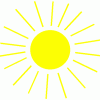
Solar Powered Cooking
Source Institutions
In this activity, learners make a solar oven. Learners witness the awesome power of the sun to make a yummy treat--a chocolate chip cookie!
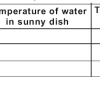
Cool Trees
Source Institutions
This warm weather activity introduces learners to the impact trees have on blocking the sun's heat and reducing temperature on the Earth's surface.
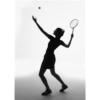
Hit the Spot!
Source Institutions
This is a hands-on activity about the physics of tennis. Learners will discover that physics plays a big part in tennis, no matter what their skill level might be.
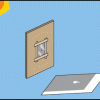
Finding the Size of the Sun and Moon
Source Institutions
In this activity, learners build a simple pinhole viewer. They use this apparatus to project images from a variety of light sources, including a candle, the Sun, and the Moon.
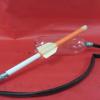
Stomp Rocket
Source Institutions
In this activity, learners build rockets and shoot them into the air by stomping on the plastic bottle launchers.
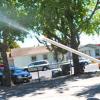
PVC Water Squirter
Source Institutions
In this activity, learners build a water squirter using a PVC pipe, dowel, and foam. This activity is great for the summer time and introduces learners to forces and water pressure.
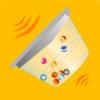
Ocean Echolocation
Source Institutions
Use echolocation to find others and experience how whales’ senses have adapted to suit their environment. In pairs, learners are blindfolded and use containers filled with marbles to find each other.
Splitting White Light
Source Institutions
In this optics activity, learners split white light into all its component colors using three household items: a compact disc, dishwashing liquid, and a hose (outside).
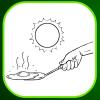
Solar Cooker
Source Institutions
Learners build a simple solar oven from a shoebox, black construction paper, and aluminum foil. Over the course of a few hours, the oven heats up water enough to brew tea.
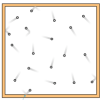
What Causes Pressure?
Source Institutions
In this kinesthetic activity that demonstrates pressure, learners act as air molecules in a "container" as defined by a rope.

Why do Hurricanes go Counterclockwise in the Northern Hemisphere?
Source Institutions
In this kinesthetic activity, learners will play a game with a ball to demonstrate the Coriolis force, which partly explains why hurricanes in the Northern Hemisphere rotate counterclockwise.

Drying It Out
Source Institutions
In this activity, learners investigate and compare the rate of drying in different conditions.

Head in the Clouds
Source Institutions
In this activity, learners create a CloudSpotter wheel and record the different types of clouds they observe twice daily over several days.
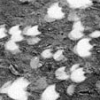
How to View a Solar Eclipse
Source Institutions
This is an activity to do when there is a solar eclipse!
